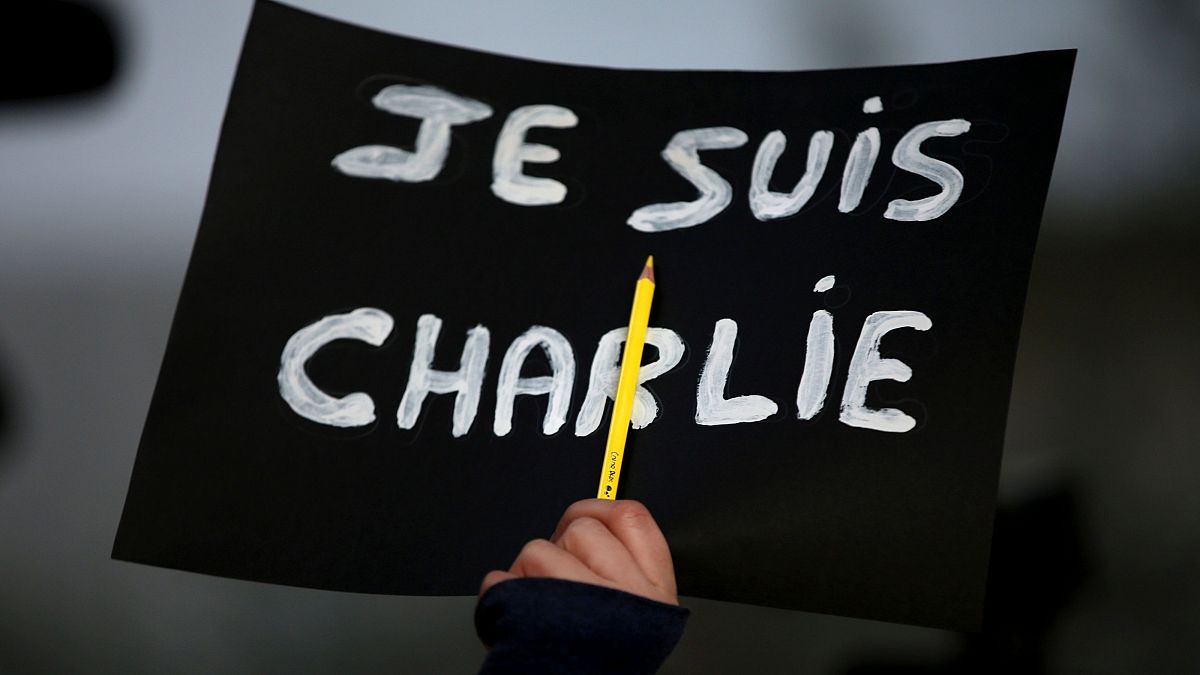French satirical magazine Charlie Hebdo has reprinted caricatures of the Prophet Muhammad that were cited by Islamic extremists as a reason for the murderous attack on the magazine’s office in 2015.
French satirical magazine Charlie Hebdo has reprinted caricatures of the Prophet Muhammad that were cited by Islamic extremists as a reason for the murderous attack on its staff in January 2015.
The images were republished on the eve of Wednesday's trial into Charlie Hebdo killings, which, along with a later attack on a kosher supermarket, left 17 people dead.
While the three attackers were killed by police, those going before French justice are accused of being accomplices. They include the wife of one of the attackers - being tried in absentia - as well as a network of men who allegedly supplied guns, ammunition, transportation and bulletproof vests.
The front page of the current edition reads “All this, for this,” alongside the images of Muhammad.
An editorial explains the pictures now “belong to history”.
“Reproducing these caricatures this week of the opening of the January 2015 terrorist attacks seemed essential to us. All the reasons that could be opposed to us relate only to political or journalistic cowardice. Do we want to live in a country that prides itself on being a great free and modern democracy, and which, at the same time, gives up on asserting its deepest convictions?”
Pakistan condemned the move, saying it offends billions of Muslims. Others have defended the right to freedom of expression.
"If you want to criticise an idea, and religions in particular are very strong ideas, which have huge sway over people's lives (...) you should be able to do so," said Andrew Copson, the president of Humanists International, which leads a campaign to repeal laws against blasphemy around the world.
However, Copson told Euronews (see video, above) there appeared to be a "move toward self-censorship" in the media since the Charlie Hebdo shooting.
The pictures were originally published in 2005 by the Danish newspaper Jyllands-Posten, and then republished in 2006 by Charlie Hebdo.
Charlie Hebdo’s office had been under attack before by Islamic extremists, including a firebomb attack in 2011.
Its editorial leadership were placed under police protection, which remains in place to this day.
Laurent Sourisseau, the paper's director and one of the few staff to have survived the attack, named each of the victims in a foreword to this week's edition.
“Rare are those who, five years later, dare oppose the demands that are still so pressing from religions in general, and some in particular,” wrote Sourisseau, who is also known as Riss.
The 2015 attack
Brothers Chérif and Said Kouachi, entered the Charlie Hebdo office armed with rifles and other weapons, killing 12 people and injuring 11 others.
As they left they declared: “We have avenged the Prophet.”
They then killed a wounded policeman from point-blank range and drove away.
Two days later, a jailhouse acquaintance of theirs, Amedy Coulibaly, stormed a kosher supermarket on the eve of the Jewish Sabbath, killing four hostages and claiming allegiance to the Islamic State group. He also killed a young policewoman.
The Kouachi brothers had by then holed up in a printing office with another hostage. All three attackers died in near-simultaneous police raids.
One of the three absent defendants is Hayat Boumedienne, Coulibaly’s wife who fled to Syria days ahead of the attacks. She took a starring role in one of Islamic State’s propaganda blitzes, urging French Muslims, men and women alike, to follow her path.
“The opening of this trial is the moment to remember that the fight against Islamist terrorism is a major priority of the government," Interior Minister Gérald Darmanin said Monday in a speech at the French intelligence headquarters. "We will fight relentlessly.”
The trial will be filmed for posterity, a rarity in France reserved for proceedings of historical importance.
